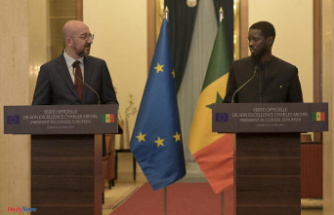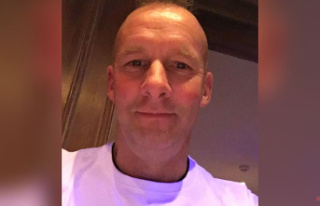MEPs have voiced strong criticism of the UK government's unilateral override of the Northern Ireland Protocol.
This protocol is part the Brexit deal, which was signed by the prime minister in 2019, and later ratified at the parliament.
The government claims that it is now causing too much political and practical problems.
The EU claims that the UK's attempt to alter the agreement is illegal.
Barry Andrews, MEP representing the Republic of Ireland's Fianna Fail Party, stated: "In the UK the stigma against breaking international, domestic and constitutional law has been significantly diminished since Boris Johnson was elected prime minister.
"The last 24 hours have shown that enough is enough for many."
Other MEPs made mention of the difficulties faced by the prime Minister during the Strasbourg debate.
According to the German Green Terry Reintke, the UK's actions seem like "a group reckless, privileged individuals trying to distract themselves from their own mistakes by violating international law rather that serious governing".
This protocol prevents Northern Ireland from being excluded from the EU's single European market for goods.
It also means that there will be new controls and checks on any commercial goods coming into Northern Ireland from the UK. This creates a trade barrier in the Irish Sea.
The unionist parties in Northern Ireland are opposed to it, claiming that it would undermine their position in the UK.
The largest unionist party, Democratic Unionist Party (DUP), has stated that it will not fully reenter Northern Ireland's power sharing government until the protocol is resolved to their satisfaction.
The protocol was agreed by three parties in Northern Ireland: Alliance, Sinn Fein and the Social Democratic and Labour Party.
To reduce controls on GB goods entering NI, the government intends to radically alter the protocol in UK domestic laws.
It also plans to create a system for "dual regulation", which will allow goods manufactured to GB standards to be manufactured in NI or imported to NI.
Last week, the legislation was approved by its first parliamentary stage.
Although the government claims that the move is not in violation of international law, citing "necessity", legal experts are skeptical.
MEPs stressed that it was still possible to reach a compromise.
David McAllister is a German MEP and chairs the parliament's Foreign Affairs committee. He said that "We remain partners with common values, therefore I call upon the UK government to resume talks to facilitate practical implementation of this protocol."
Maros Sefcovic, the EU's chief negotiator, echoed this sentiment when he addressed the MEPs.
He stated that the EU had displayed "creativity” in its proposals to reduce the impact of the protocol, but that it still needs to show "political will" in London in order to have genuine talks.












